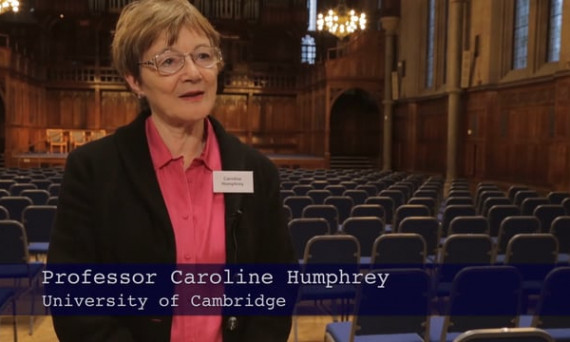Адрес: Новое здание университета, Гагаринская ул., 6/1, лит.А (вход со Шпалерной, 1), второй этаж, аудитория 201, конференц-зал.
Семинар начнется с рассмотрения двух хорошо известных идей в социальной антропологии, а именно культурный ландшафт и общественное пространство. Классические формулировки этих идей, которые были сделаны в 1980-х гг. могут быть расширены сегодня. Во-первых, рассмотрением того как создаются границы, которые являются не только политическими в широком смысле слова, но также различаются для мужчин и для женщин. Во-вторых, наблюдением исторических изменений о том, как люди представляют окружающий мир. Все это будет рассмотрено на примере южных бурят в последние годы. Я рассматриваю родство и религию как два важных социальных института, которые структурируют пространственный опыт (ощущения) мужчин и женщин, что в свою очередь создает непохожее у двух полов отношение к таким понятиям как «родное место», «сакральное пространство» и «чужбина». Это также создает разные пространственные практики, такие как «запрещенные для женщин места», «ритуалы предотвращения» и так далее. Используя исторический подход, на семинаре будут рассмотрены мужские, женские и общие социальные пространства и будет подчеркнуто существование двух противоположных явлений: а) популяризация некоторых, весьма архаических архетипов в настоящее время, б) появление новых социальных пространств в эпоху глобализации.
Professor Dame Caroline Humphrey (Fellow, King's College, Cambridge University), FBA, is an anthropologist who has worked in Russia, Mongolia, China (Inner Mongolia and Heilongjiang), India, Nepal and Ukraine. She has researched a wide range of themes including Soviet and post-Soviet provincial economy and society; Buryat and Daur shamanism; Jain religion and ritual; trade and barter in Nepal; environment and the pastoral economy in Mongolia; and the history and contemporary situation of Buddhism, especially in Inner Mongolia. She has written on inequality and exclusion; the politics of memory; naming practices; ethics and conceptions of freedom. Recent research has concerned urban transformations in post-Socialist cities (Buryatia; Uzbekistan, Ukraine). Currently she is developing a research project on socio-political interactions on the Russian–Mongolian–Chinese border.
«How women’s landscape can be different from men’s: an example from Buryatia»
The seminar will start from two well-established ideas in anthropology: ‘cultural landscape’ and ‘social space’. It will argue that the classical formulations of these ideas in the 1980s can be usefully extended: first by investigating how they imply the creation of spaces and boundaries that are not only political in a broad sense but also in some ways different for men and women, and second by observing the existence of historical shifts in how people imagine the world around them. The seminar will take the example of the southern Buryats in recent years. It will look at kinship and religion as two crucial institutions that structure the spatial experience of men and women, and will suggest that they have always given rise to dissimilar attitudes to concepts such as ‘homeland’, ‘sacred place’, or ‘foreignness’, as well as to different everyday practices within the landscape (forbidden sites for women, precautionary rites, etc.). The seminar will look at male, female and common social spaces historically, observing both that some extremely ancient archetypes have recently burst into great popularity and also that some significant shifts are taking place in the era of globalised travel and communications.
